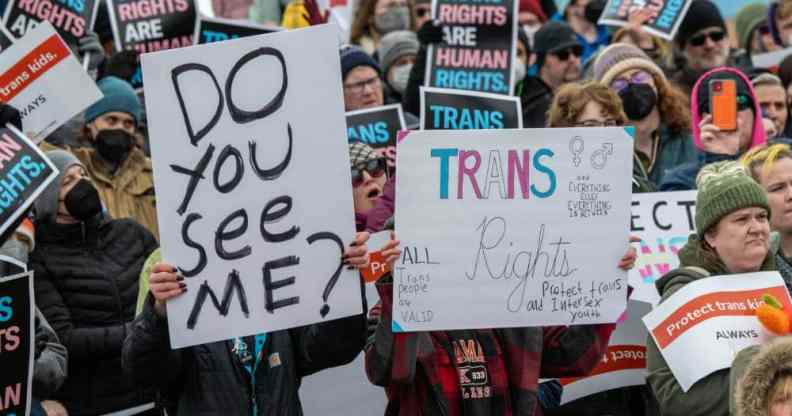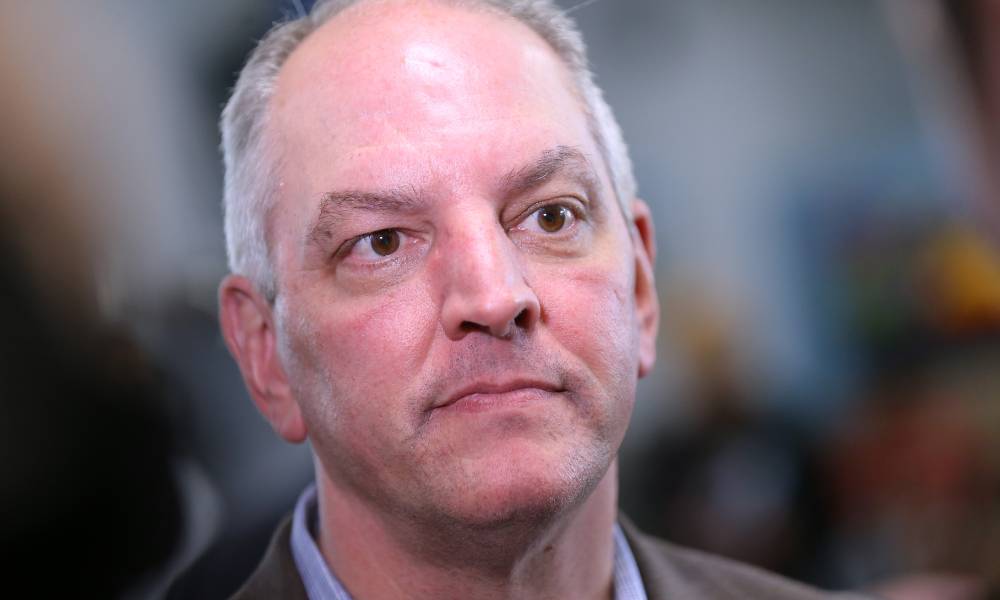Louisiana families file lawsuit to block trans healthcare ban

Louisiana families have filed a lawsuit to block the state ban on gender-affirming care for trans minors. (Michael Siluk/UCG/Universal Images Group via Getty)
LGBTQ+ advocates and legal experts have filed a lawsuit to block Louisiana’s ban on trans healthcare for minors.
The lawsuit, filed on Monday (8 January), was prepared by Lambda Legal and other LGBTQ+ advocates on behalf of five minors and their families.
It comes in response to Louisiana’s state lawmakers approving a ban on gender-affirming care for minors last year.
House Bill 648, which makes Louisiana one of 22 US states to ban or restrict trans healthcare, bans access to gender-affirming care like puberty blockers, hormone treatments and, in rare cases, gender-affirming surgeries, for transgender minors.

Like other bills of this nature, it would also punish healthcare professionals who provide such care to transgender minors by removing their medical licence for a minimum of two years.
Gender-affirming healthcare is the age-appropriate treatment that can be provided to transgender and non-binary people to alleviate symptoms of gender dysphoria or distress.
There is an abundance of evidence that proves this care is medically safe and improves the mental health of eligible candidates who participate.
In their lawsuit, filed in Louisiana district court, Lambda Legal and their clients argue that the bill violates the constitutional right to privacy provision since it blocks parents and individuals from having the right to make personal medical decisions, NBC News reports.
It reads: “The Act’s prohibition on providing evidence-based and medically necessary care for transgender adolescents with gender dysphoria stands directly at odds with transgender adolescents’ right to obtain the medical treatment they need, as recommended by their medical providers and with the support of their parents.”
The bill was passed in June 2023, after originally being struck down by a House committee by just one Republican vote – submitted by pharmacist and senator Fred Mills, who argued that it was unnecessary to impose sanctions on potentially life-saving healthcare.

The following month, Louisiana’s Governor John Bel Edwards vetoed the gender-affirming care ban. In his veto letter, he noted the irony of House Bill 648 being named the “Stop Harming Our Kids Act”, since that’s “precisely what it does.”
His letter added: “It is unfathomable to think that in my last few months serving as governor of this state I would sign into law a bill that categorically denies health care for children and families based on propaganda and misinformation generated by national interest groups.”
Unfortunately, Republican lawmakers had the power to vote to override the governor’s veto – which is exactly what they did in July.
Governor Edwards left office on Monday (8 January), and has since been replaced by Republican Jeff Landry, who has voiced his support for the trans healthcare ban.
There is hope that this lawsuit could make a difference and have the discriminatory ban thrown out once and for all.
Similar legal action has been successful in states like Idaho and Indiana with district and federal judges ruling that blanket bans on trans healthcare for minors is an infringement on the right to equal protection under the 14th amendment, and on a parent’s right to make healthcare decisions on behalf of their children.
Gender-affirming care, which had been widely available across the US for over a decade, is endorsed by most major medical associations including the American Academy of Pediatrics, the American College of Physicians, the American Medical Association, the World Medical Association, and the World Health Organisation.

